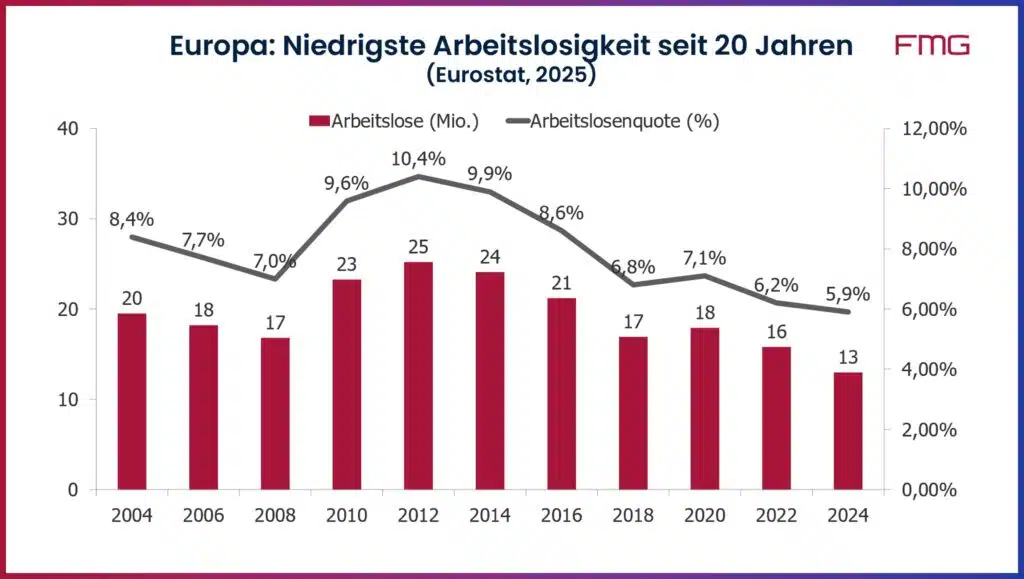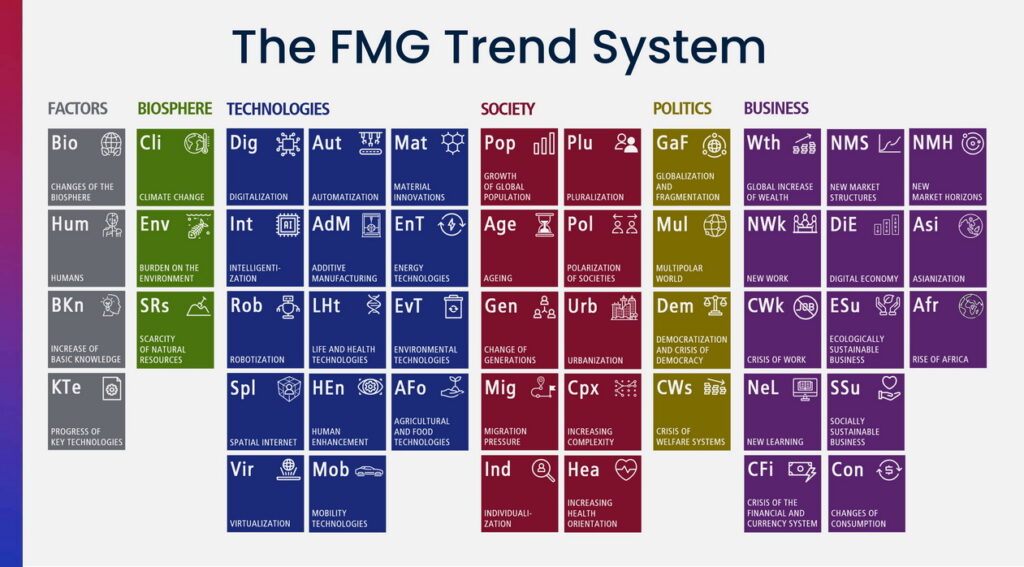Fuád Abuschuscha
Everything used to be better! Or?
Many people are convinced of this. However, our perception often deceives us: we underestimate how much we have learned – and how much the world has actually improved.
Example: Labor market
In 2004, almost 20 million people were unemployed in the EU; by 2024, this figure will be just under 13 million. Despite the global financial and economic crisis, the sovereign debt crisis in individual member states and the pandemic, over six million more people are in work. This is the lowest figure in the EU for twenty years.
Germany, for example, has been recording unemployment rates of 5% or less for several years, and the Czech Republic only ~2-3%. The positive development of the labor market shows that Europe can overcome crises and remain competitive. A generation that grows up without mass unemployment can look to the future with more confidence.

Why is this a reason to look forward to the future?
It proves that we can overcome even the biggest crises if politics, business and society pursue a common goal:
The mass unemployment that followed the financial and economic crisis did not materialize.
In many countries, there is almost full employment.
We as an EU community are capable of change and have all the skills to solve problems sustainably.
This is just one example of many that gives us reason to celebrate the progress we have made.
Today, we live safer, healthier and freer lives than ever before.
Yes, major challenges remain – but we have never had better opportunities to solve them.
What opportunities are opening up for companies?
Larger talent pool: The European single market makes it easier to recruit qualified specialists from many countries.
More stable demand: More employees mean greater purchasing power and growing markets.
Innovation potential: A well-educated, broadly employed population strengthens the momentum for research and development.
Locational advantages: Regions with low unemployment attract investment and create long-term planning security.


